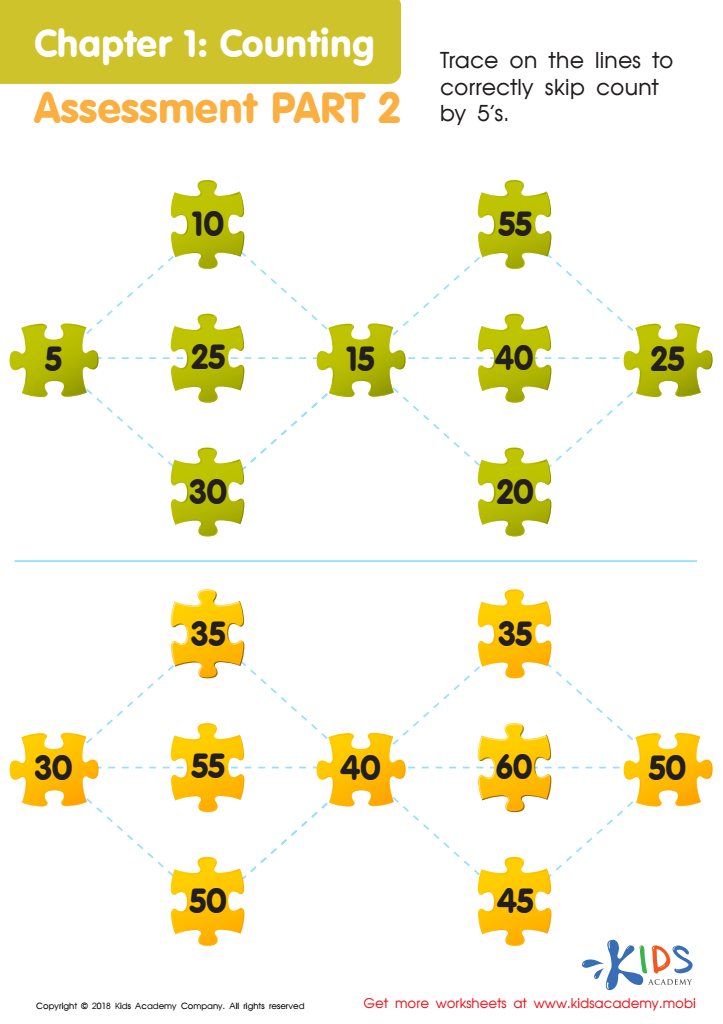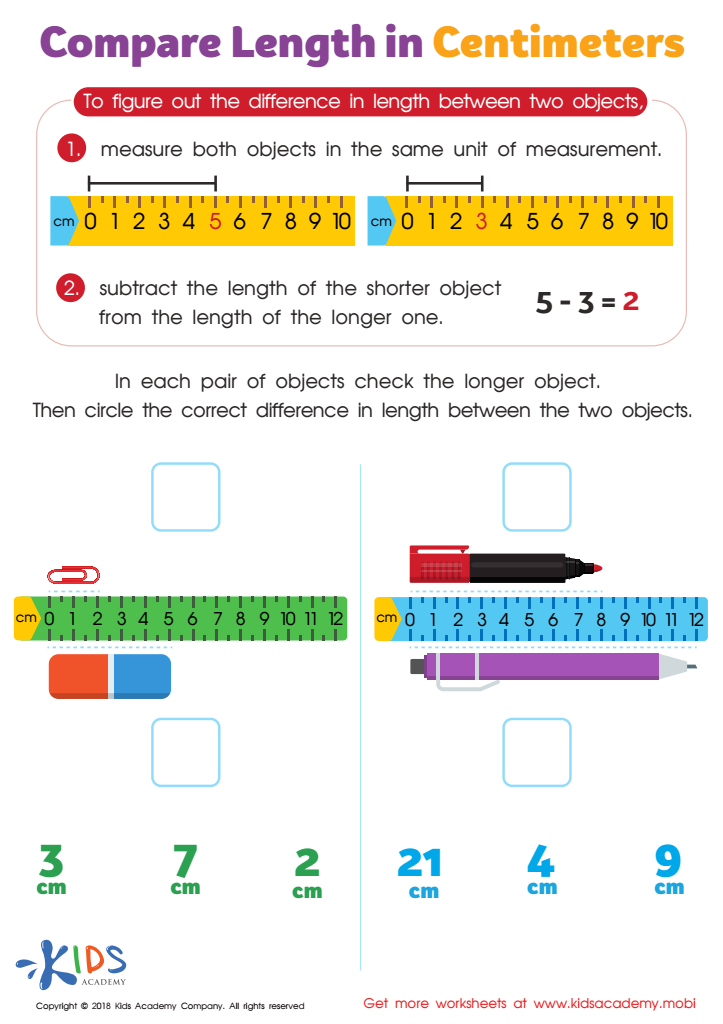Applying math skills Math Worksheets for Ages 5-9
3 filtered results
-
From - To
Discover our collection of "Applying Math Skills" worksheets, designed for children ages 5-9. These engaging and educational resources aid in the practical application of essential math skills, encompassing addition, subtraction, multiplication, division, and more. Each worksheet is crafted to strengthen problem-solving abilities, enhance critical thinking, and build a solid math foundation in young learners. Perfect for classroom use or at-home practice, our math worksheets make learning fun and interactive. Equip your child with the skills they need to excel in math with activities tailored to their developmental stage and learning pace.


Counting: Assessment 2 Worksheet


Compare Length in Centimeters Worksheet
Parents and teachers should prioritize applying math skills for children aged 5-9 because it forms the foundation for essential cognitive and academic development. At this stage, children are like sponges, absorbing foundational knowledge that will support all future learning. Early exposure to math concepts such as counting, addition, subtraction, and basic geometry builds their numerical fluency and enhances problem-solving skills.
Mathematical thinking cultivates critical thinking, logical reasoning, and the ability to make connections between concepts. These skills enhance overall academic performance, not just in math but also in subjects like science and reading where analytical skills are valuable.
Math also plays a vital role in everyday life skills. By learning to measure, compare quantities, and understand patterns, children make sense of the world around them, from simple tasks like sharing toys fairly to more complex activities like understanding time and money management.
Moreover, early confidence in math can foster a positive attitude toward the subject, reducing anxiety and encouraging lifelong learning. It empowers children, giving them the tools to approach challenges with resilience and creativity.
In short, fostering math skills in young children sets them on a path of academic success and practical competency, both of which are essential for their future growth and opportunities.


 Assign to My Students
Assign to My Students




















